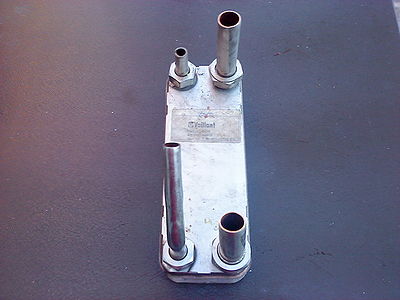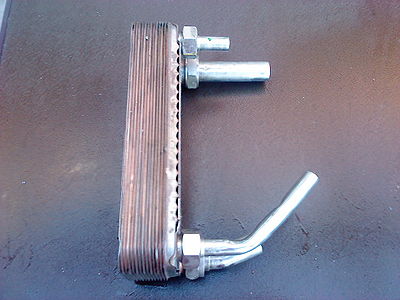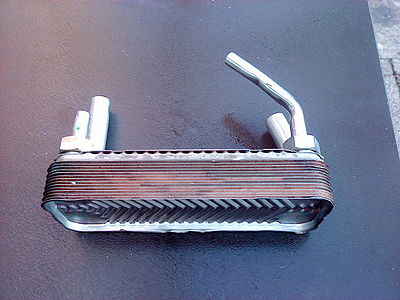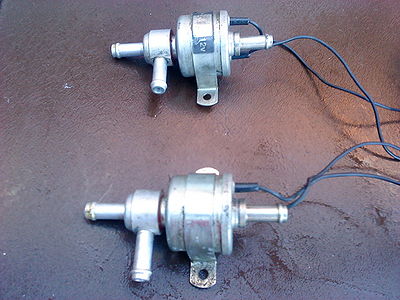Difference between revisions of "Heat exchangers and solenoid valves"
| Line 5: | Line 5: | ||
The vehicle is started on mineral Diesel, and then the valves switch over to an auxiliary veg tank when the engine reaches full temperature - the heat exchanger is used to heat the vegetable oil before it reaches the injection pump, using engine coolant transfering heat across the plates of the heat exchanger. | The vehicle is started on mineral Diesel, and then the valves switch over to an auxiliary veg tank when the engine reaches full temperature - the heat exchanger is used to heat the vegetable oil before it reaches the injection pump, using engine coolant transfering heat across the plates of the heat exchanger. | ||
| − | Before stopping the engine at the end of a journey, the system must be "Flushed or Purged" with mineral Diesel, making it safe to re-start | + | Before stopping the engine at the end of a journey, the system must be "Flushed or Purged" with mineral Diesel, making it safe to re-start ie: in the morning from a cold start. |
<gallery caption="Click pictures to enlarge" widths="400px" heights="300px" perrow="2" align="center"> | <gallery caption="Click pictures to enlarge" widths="400px" heights="300px" perrow="2" align="center"> | ||
Revision as of 06:16, 8 December 2010
These are the essential parts required when building a twin-tank system.
The vehicle is started on mineral Diesel, and then the valves switch over to an auxiliary veg tank when the engine reaches full temperature - the heat exchanger is used to heat the vegetable oil before it reaches the injection pump, using engine coolant transfering heat across the plates of the heat exchanger.
Before stopping the engine at the end of a journey, the system must be "Flushed or Purged" with mineral Diesel, making it safe to re-start ie: in the morning from a cold start.
- Click pictures to enlarge
Rotary-Motion 21:50, 5 December 2010 (UTC)




